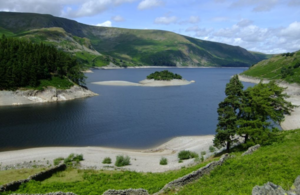Government to strengthen and modernise reservoir safety regime
Reform of the regulatory programme will be delivered in collaboration with reservoir owners and engineers over the coming years

The Government has today committed to improving reservoir safety through reforms to the regulatory regime and modernisation of the Reservoirs Act 1975 as it accepted all of the recommendations of the second part of an independent review by Professor David Balmforth.
With the review recognising the strong safety track record of reservoirs in England, the reforms will help to ensure that the regulatory regime remains effective and robust in securing the ongoing safety of such critical infrastructure so that those living downstream of reservoirs are protected from flooding which could risk their lives and property.
They will build on action already being taken to improve reservoir safety following the incident at Toddbrook Reservoir in 2019, including the government’s full implementation of the recommendations of the first part of the independent review.
Environment Minister Steve Double said:
The safety of those living and working near reservoirs must always be a priority. By modernising and reforming legislation and regulation regimes, we will help to protect communities and provide them with increased peace of mind.
Professor Balmforth’s review provided us with a comprehensive understanding of the strengths and weaknesses of the reservoir safety regime, and the progress that is needed to ensure it is fit for the future, with safety standards consistently applied across all our reservoirs.
Caroline Douglass, Environment Agency Executive Director for Flood and Coastal Risk Management, said:
England has a strong reservoir safety record, and we are always looking for ways to improve our approach, especially in the face of a changing climate.
We look forward to working with Defra, reservoir owners, and engineers to implement these reforms and ensure that reservoirs are regulated using a modern risk-based approach.
Reform of the regulatory programme will be delivered in collaboration with reservoir owners and engineers over the coming years, with a timeline that will ensure that the changes can be managed by industry while maintaining ongoing reservoir safety management.
In 2022/23 and 2023/24, reforms will be made through existing powers, guidance and training, including:
- improving enforcement options and flexibility using civil sanctions;
- introducing review of engineers’ reports by the Environment Agency;
- developing proposals for a proportionate charging scheme to improve recovery of regulatory costs; and
- introducing a free registration scheme for owners of small raised reservoirs during 2022/23.
In 2023/24, a consultation on the modernisation of the Reservoirs Act will look at:
- developing a new risk/hazard classification and how it could operate;
- developing proposals to make the future supply of reservoir engineers more sustainable;
- developing proposals for regulating small raised reservoirs within the new safety regime, for consultation.
The reforms will build on actions which are already being taken to improve reservoir safety following the incident at Toddbrook Reservoir in 2019, including a Ministerial Direction requiring all large raised reservoirs to have on site emergency flood plans, new guidance on spillway inspection and management, new guidance for reservoir engineers about carrying out inspections and supervision, and research to improve the future supply of engineers.